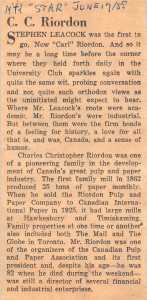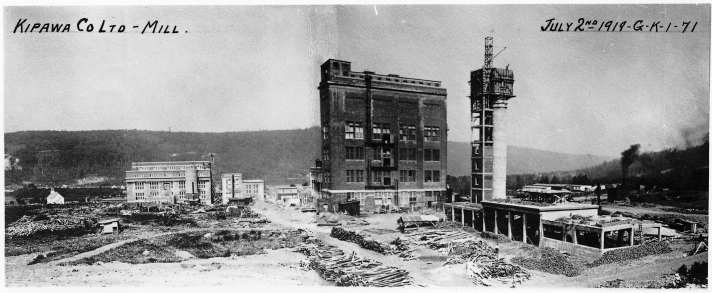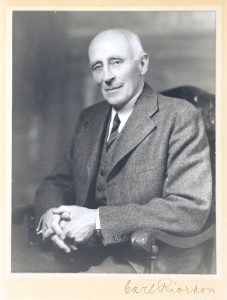
Stephen Leacock was the first to go. Now “Carl” Riordon. And so it may be a long time before the corner where they held forth daily in the University club sparkles again with quite the same wit, probing conversation and not quite such orthodox views as the uninitiated might expect to hear. Â Where Mr. Leacock’s roots were academic, Mr. Riordon’s were industrial. But between them were the firm bonds of a feeling for history, a love for all that is, and was, Canada, and a sense of humour.
Charles Christopher Riordon was one of a pioneering family in the developement of Canada’s great pulp and paper industry. The first family mill in 1862 produced 25 tons of paper monthly. When he sold the Riordon Pulp and Paper Company to Canadian International Paper in 1925, it had large mills at Hawkesbury and Timiskaming. Family properties at one time or another also included both The Mail and The Globe in Toronto. Mr. Riordon was one of the organizers of the Canadian Pulp and Paper Association and its first president and, despite his age—he was 92 when he died during the weekend—was still a director of several financial and industrial enterprises.
Montreal Star – June 17th 1958



 He had great faith in human nature.
He had great faith in human nature.